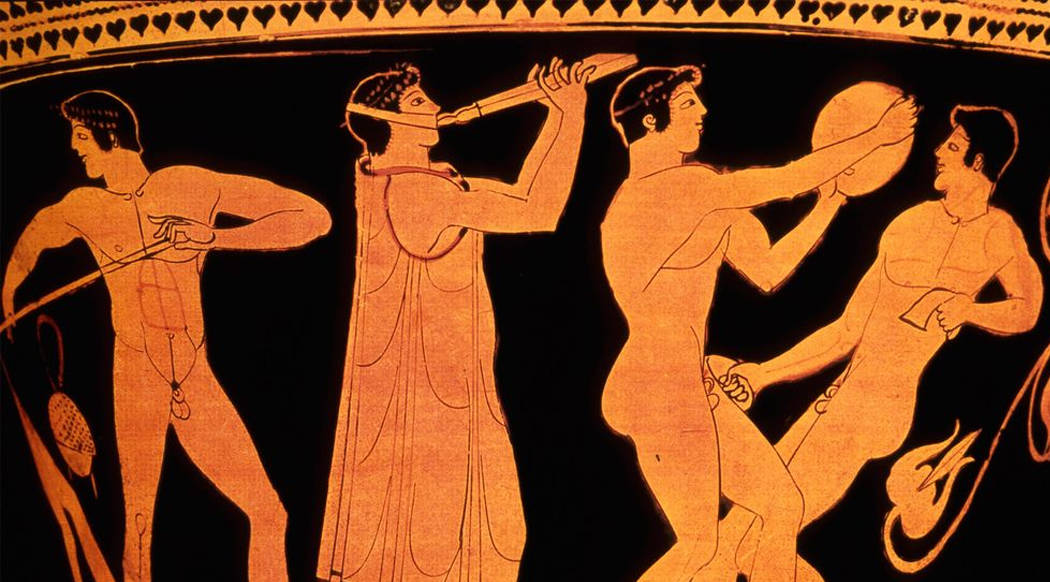When learning a new language, it is inevitable that you want to find out the “bad words.” It is no different when learning ancient languages like Latin or Greek. For instance, in Latin words to describe the male genitalia are considered the bad words. These words were mentula and uerpa. For all intents and purposes they are the most obscene words for the male genitalia based on literary and archeological evidence. Even a proper Roman like Marcus Tullius Cicero simply refused to write mentula in response to a letter. It is hard to approximate just how improper it was to use these words in civilized conversation, but one can imagine its equivalent today would be the four letter c-word, similar to the Latin word cunnus.
Romans were very specific when it came to their vocabulary. For instance, written in the opening line of Catullus 16 is, “Pedicabo ego vos et irrumabo”[1], which are very specific acts meaning to perform anal intercourse and forced receptive male oral sex. Turning back to the words mentula and uerpa, the later word has a very specific and explicit meaning of an erect phallus with the foreskin pulled back and the glans exposed. This was considered exceptionally rude, especially for the upper class who was well versed in Greek culture.
In the process of trying to find the word for penis in ancient Greek (for purely scholarly reasons, of course) I embarked on a harrowing quest through the Greek lexicon known as Liddell and Scott which comes in three sizes the “little Liddell”, “middle Liddell” and the “Great Scott.” My search turned up scant results, however, they did have a word that was somewhat related. Liddell and Scott compiled it rather secretively unless you knew both languages.
ὄλισβος , ὁ,
A. penis coriaceus, Cratin. 316, Ar.Lys.109, Fr.320.13.
I am sure you can figure out the cognate of the Latin word penis, but you must be a pretty savvy Latinist to know what coriaceus. Let us consult Lewis and Short:
cŏrĭăcĕus , a, um, adj. corium,
I. of leather: “naves” made of leather, Amm. 24, 3, 11.
So, the Greek word ὄλισβος is simply a leather penis! Aside from the archeological evidence, as evident of the pictures accompanying this article, there is literary evidence as well. I will leave you with a short humorous scene from book six of Herodas’ Mime [2]. The following scene involves two women, Metro and Coritto, discussing the procurement of a dildo from a cobbler.
METRO
I beg you, don’t lie, dear Coritto: Who was the Man who stitched for you this bright red dildo? [3]
CORITTO
I don’t know if [Cerdon] is from Chios or Erythrae [4]; bald, small – you’d call him a right ‘Mr. Tradesman’. You’ll think you’re seeing the handiwork of Athena herself not Cerdon’s.
I – for he arrived bringing two, Metro – at the sight of them – well my eyes bulged; men can’t make their rods as rigid as this – we are alone and can be frank – and not only that, these are as soft as sleep; and the little leather straps are as soft as wool, not like leather straps at all [5]. A kinder cobbler to a woman you’ll not find – even by putting-out.
METRO
Why then did you not take the other one as well?
CORITTO
What didn’t I do, Metro? What sort of means of persuasion did I not apply him? Kissing him, stroking his bald head, pouring out a sweet drink for him, calling him by a pet name, giving him all by my body to enjoy [6].
METRO
If he asked even that you ought to have given him it [7].
